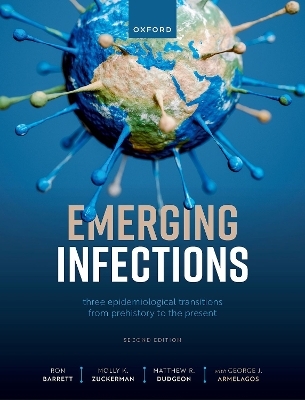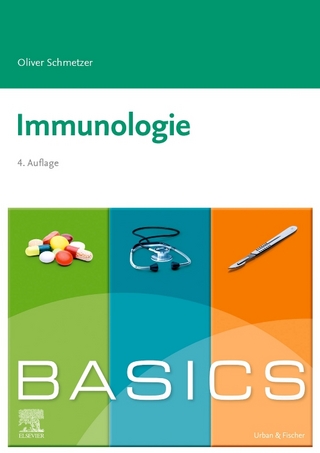
Emerging Infections
Oxford University Press (Verlag)
978-0-19-284314-2 (ISBN)
Serving as both an accessible textbook and an original synthesis of interdisciplinary scholarship, Emerging Infections traces the social and environmental determinants of human infectious diseases from the Paleolithic to the present day. Contrary to earlier predictions of a post-infectious era, humanity now faces a post-antimicrobial era with the emergence of drug-resistant pathogens and the entry of new and deadly viruses such as Ebola and COVID-19 in the human population. Yet despite the novelty of these infections, their evolution is primarily driven by the same human activities of subsistence, settlement, and social organization that have been recurring over the last ten thousand years.
Approaching these activities from a biocultural perspective, this book examines the prehistory and history of human infectious diseases. Much has happened in the decade since the first edition, with significant developments in both disease research and in the evolution of the diseases themselves. As such, this new edition has been expanded to include recent epidemics of Ebola, Zika, MERS, and of course, COVID-19. Indeed, the book's biocultural approach is especially relevant to the COVID-19 pandemic, examining it from a deep time perspective and placing it within a much-needed explanatory framework.
Emerging Infections is suitable for advanced undergraduates, graduates, and researchers in anthropology, the medical social sciences, public health, and the history of medicine. The book will also appeal to a more general readership with an interest in public health and infectious diseases.
Ron Barrett is an Assistant Professor of Medical Anthropology at Macalester College. His research concerns the social aspects of infectious diseases, with an ethnographic focus on northern and western India. His work on the biosocial aspects of leprosy and other socially stigmatized diseases can be found in, Aghor Medicine: Pollution, Death, ad Healing in Northern India (University of California Press), which was recently awarded the Wellcome Medal for Medical Anthropology by the Royal Anthropological Institute. His currently the primary investigator for an NSF-sponsored research on the relationship between social support networks and health-seeking for influenza-like illnesses in a western Indian slum community. Professor Barrett is co-editor of a textbook reader, Understanding and Applying Medical Anthropology (McGraw Hill). He is also a registered nurse with clinical experience in hospice, neuro-intensive care, and brain injury rehabilitation. Molly Zuckerman is a Professor in the Department of Anthropology and Middle Eastern Cultures (AMEC) at Mississippi State University. Her research interests include Bioarchaeology, Paleopathology, Paleoepidemiology, and Biocultural Anthropology. Within these domains, she is broadly interested in the biosocial determinants of health inequalities and disease experiences within past populations. She is a Senior Editor of the Oxford Research Encyclopedia of Anthropology, published by Oxford University Press. Matt Dudgeon is an Assistant Professor of Medicine in the Emory School of Medicine and Associated Assistant Professor in the Department of Anthropology at Emory University. His research has focused on the intersection of health and culture. He currently participates in research on determinants of antiretroviral failure in South Africa, a cross-national comparison of determinants of vaccine acceptance, internal medicine resident simulation training, and hospital-based ethnography of healthcare provider experiences during the COVID-19 pandemic. The late George J. Armelagos was Goodrich C. White Professor of Anthropology at Emory University. His research interests concerned the paleopathology and evolution of diet and disease in prehistoric human populations. His research has involved the osteological and pathological analysis of mummified and skeletal populations from North Africa and North America, tracing health changes associated with the Neolithic transition to sedentism and agriculture. He has also published osteopathic and phylogenetic evidence in support of the New World origin of syphilis. Professor Armelagos is the former president of the American Association of Physical Anthropologists (AAPA). He is a recipient of the Franz Boas Award (American Anthropological Association), the Charles Darwin Award (AAPA), and the Viking Medal (Wenner Gren Foundation).
1: Introduction
The First Transition
2: The Paleolithic Baseline
3: Agriculture and the First Emerging Infections
The Second Transition
4: When Germ Theory Didn't Matter
5: The Worst of Both Worlds
The Third Transition
6: Converging Infections
7: Inevitable Resistance
8: Conclusion
| Erscheinungsdatum | 03.04.2024 |
|---|---|
| Verlagsort | Oxford |
| Sprache | englisch |
| Maße | 190 x 246 mm |
| Gewicht | 420 g |
| Themenwelt | Studium ► Querschnittsbereiche ► Infektiologie / Immunologie |
| Studium ► Querschnittsbereiche ► Prävention / Gesundheitsförderung | |
| Naturwissenschaften ► Biologie ► Humanbiologie | |
| Sozialwissenschaften ► Ethnologie | |
| Sozialwissenschaften ► Soziologie | |
| ISBN-10 | 0-19-284314-1 / 0192843141 |
| ISBN-13 | 978-0-19-284314-2 / 9780192843142 |
| Zustand | Neuware |
| Informationen gemäß Produktsicherheitsverordnung (GPSR) | |
| Haben Sie eine Frage zum Produkt? |
aus dem Bereich


